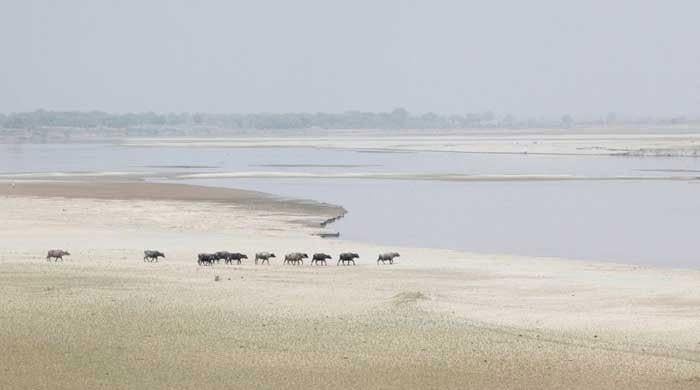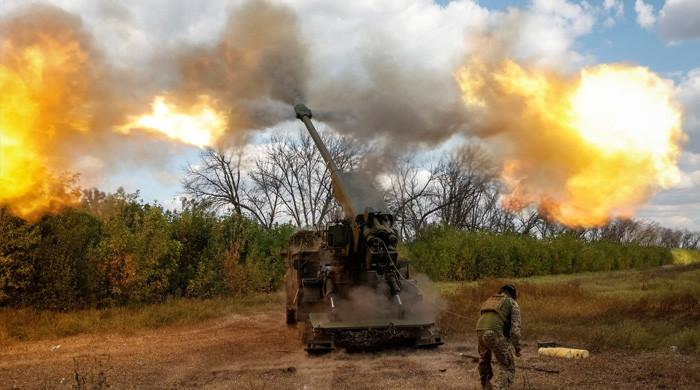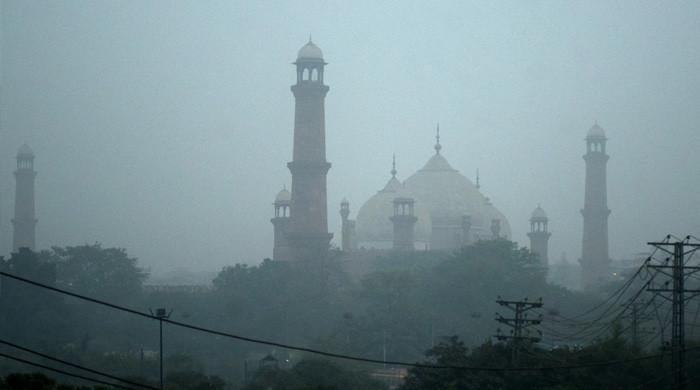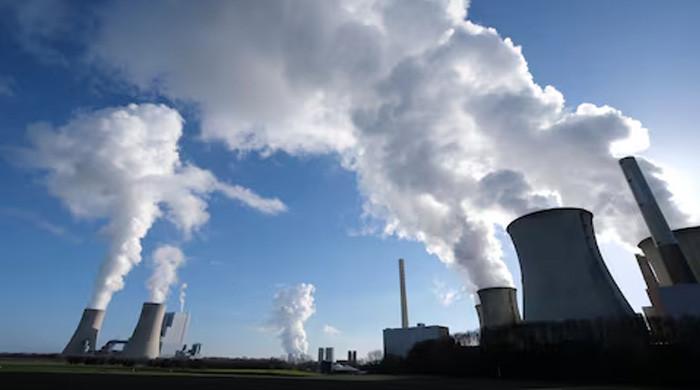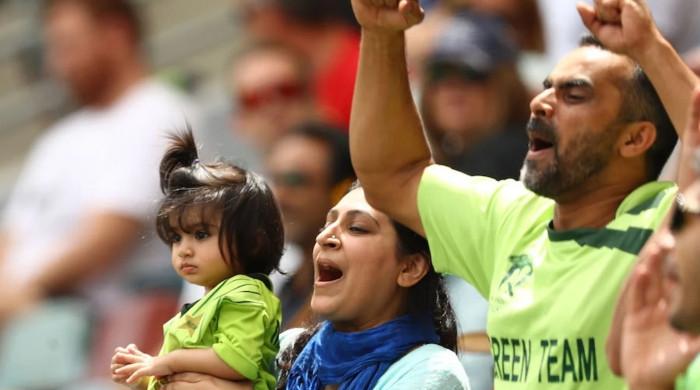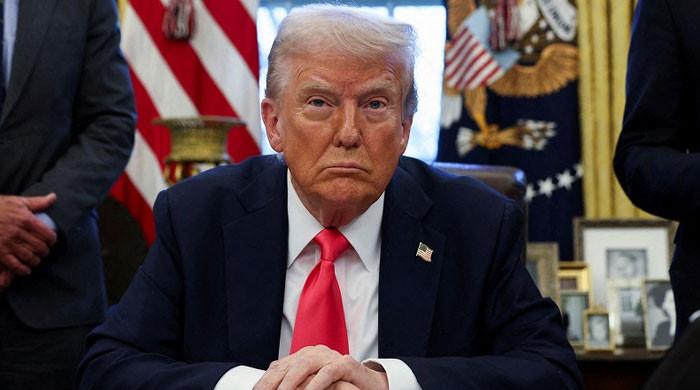Buzkashi in Doha and Moscow
The world is witnessing the most modern form of Buzkashi, the venues are Doha and Moscow, and the sponsors are US and Russia
February 06, 2019
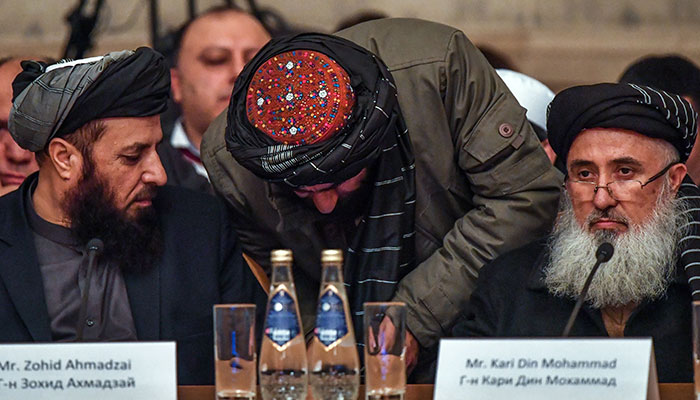
This winter the world is witnessing the most modern form of Buzkashi (headless goat pulling). Surprisingly, the venues for this brutal sport are Doha and Moscow. And, the sponsors are the United States of America and the Russian Federation. The teams are led by their special representatives, Zalmay Khalilzad and Zamir Kabulov. Whoever wins, the special prize for this national sport of Afghanistan is, the Taliban.
In the two-day moot that conclude today, Moscow is trying to pull the goat to its circle of justice. The capital is hosting all major political and religious parties of Afghanistan minus the ruling regime. A recent critic of the United States and former president Hamid Karzai has also joined hands. Other attendees include leaders of more than fifty political and social leaders from Afghanistan. Their aim is to lay a foundation for a future political settlement, interim government and political violence.
The Taliban, who earlier participated in Moscow Format, have sent a 10-member delegation led by Sher Mohammad Abbas Stanekzai. For Taliban, this round table discussion is the first step towards peace. They tried to convince the delegates to replace the constitution and that any future government should be called an ‘Islamic government’.
Taliban’s current chief negotiator Mullah Abdul Ghani Baradar is a military as well as a religious figure who had long tried to end war. Exactly ten years ago, he had even held secret peace talks with the United States and the then Karzai’s government. But, he couldn’t make any headway due to the unconducive environment. This time his position is emboldened as after six days of intense talks in Doha, the United States and Taliban have announced an understanding to make a deal.
So, it’s an interesting development that the Taliban are attending peace camps of the competing forces. Their back and forth meetings in two capitals are definitely boosting bargaining power. Taking advantage of their importance, they have already secured unofficial recognition from both powers.
After all, for the last 17 years, Taliban are a threatening reality in fifty percent territory of Afghanistan. And, it’s their resistance that has forced the occupying power to ‘admit humiliating defeat’. Now, it’s a matter of years if not months before they actually start running the state affairs.
Before assuming that role, Taliban have clearly spoken their mind on the future outlook of the country. They want security forces including the military dissolved. After all, they have to ensure that the transnational terrorists don’t use Afghan land for attacks against America, its allies and neighbours of Afghanistan. Is it possible to deliver on such a big commitment without controlling the interior ministry, trustworthy coordination among intelligence agencies and help of security forces?
The terrorist turned insurgents have no reason to believe in the very security establishment that till now is bent upon rooting them out. And, the interior ministry will also have the potential to give them unchecked leverage to extend their reach to areas under government rule.
Taliban had waited for this day for 17 years. And, the Doha Understanding has strengthened their resolve that the day to rule the whole country is coming closer.
Truly that has added to reasons why Taliban are ever more adamant in opening dialogues with the Afghan government. Their readiness to talk to other political and religious parties should also be viewed in the same context. They are basically luring every possible factor to their fold in order to give an impression that if allowed to rule, they will form an inclusive government.
These reinforcements are enough to cast doubts on the presidential elections now postponed till July. If ever held, it will be significant to see who wins the prime post. For it may open the door for Taliban to observe ceasefire and directly talk to the new government. Though, their actual aim is to assume full control.
But, there are at least possibilities that it will happen soon. Even if it does, Taliban won’t be able to take Afghanistan back to late 90s, when they had first formed the government. At the same time, they will not be as modern as were US backed regimes that followed them. Can they opt for the legacy of their movement when it was in the initial phase and they tolerated the diversity? The answer is no.
There are a few reasons for this argument. First, the Taliban have fought for two decades seeking to implement the Sharia law. Second, the Middle East is getting modernised and a need is being felt to have at least one religious-minded centre in this part of the world. The strategic and dire economic situation also calls for the establishment of such a regime. So, the glass will remain half full.
This time they won’t be able to confine women to home. Women constitute fifty percent of this war-ravaged country of thirty million people. Taliban know that rebuilding their country will be hard without involving the other half in some sectors.
In the barren land, two third of the girls don’t go to school. It is unintelligible to assume that the extremists will continue their old policy in this regard as well. Providing education is also a lucrative business as a lot of money can be attracted from the world institutions, NGOs and donors. So, it won’t be a surprise if the girls are allowed to attend separate schools.
But, there are genuine concerns how Taliban will treat minorities as memories of massacres are still afresh. There may be bloodshed in the name of imposing the rule of law. And there are fears that it will go unchecked as governmental actions are not internationally considered terrorism but merely taken as a human rights violation.
However rigid Taliban pose themselves to be, they know very well that nothing will work to their favour if they fail to strengthen the economy. Looking into their own ranks will hardly give them a person educated and equipped enough to tackle the modern financial system. The region is opening up to a new economic reality and they will have to rely on someone who can really spin the jammed wheel.
They are aware that the economy of their landlocked country cannot be developed without the help of the neighbours. For that, Taliban will have to ensure that Afghanistan is no more used as a launching pad for the proxy wars directed against the worrisome neighbours. So, they are making commitments in this regard.
In Doha, Pakistan was somehow promised that India will not be allowed to use Afghan soil against it. Yet, considering the ever-increasing role given to New Delhi and its billions of dollars’ investment, can Islamabad really have a rain check on that?
Another question is, how trustworthy Mullah Abdul Ghani Baradar can be? For, he was captured and imprisoned in Pakistan for 8 years, only to be released in 2018. And, above all, is the deal offered by the United States better than the one Pakistan was presented with decades ago by the Soviets? In such a mess, can Pakistan allow itself to put all eggs in the American basket? Yet, can the cash-starved country continue to seek the so-called regional approach led by Moscow?
Asian giant China has also put its weight in Russia’s initiative that aims at ending this conflict. Another neighbour Iran has fewer options. They have pursued a bilateral deal with the Taliban by inviting them to Tehran. At the same time, they are actively supporting the Moscow Format.
It’s not the time to cast aspersions on who truly wants to make peace- Moscow or Washington. But, the parallel effort to achieve this goal is indicative of the fact that for both capitals, peace has different meanings. And, both countries want to achieve some objectives in the name of stability. For obvious reasons, this apparent historic beginning of the endgame also has the hallmarks of a foregame.
In a nutshell, as teams of Zalmay and Zamir fight to grab the prize, one can be sure that the position of the Taliban is secure for the future to come. But, this is not the end of the story. The regional and international spectators must be patient in watching the game. There may be a long lull but the tragic game being played in Afghanistan is not going to end soon.




